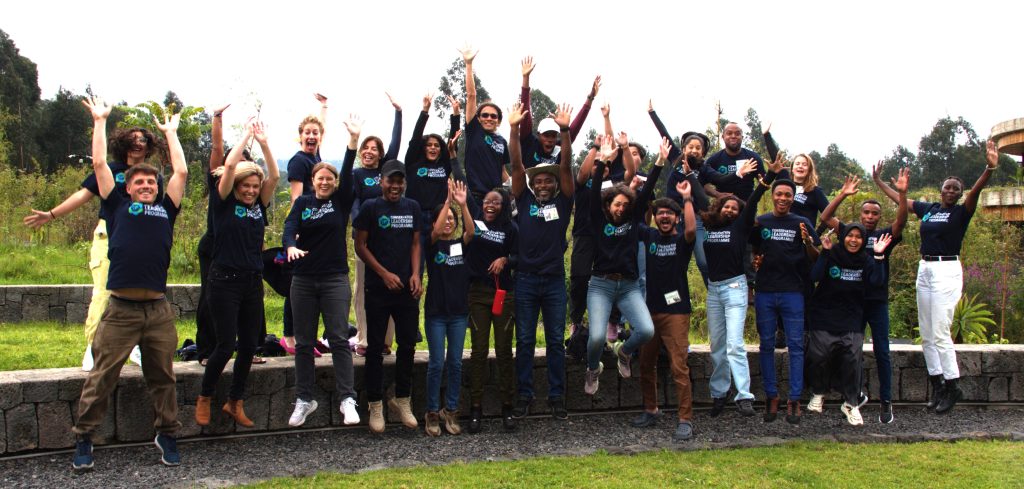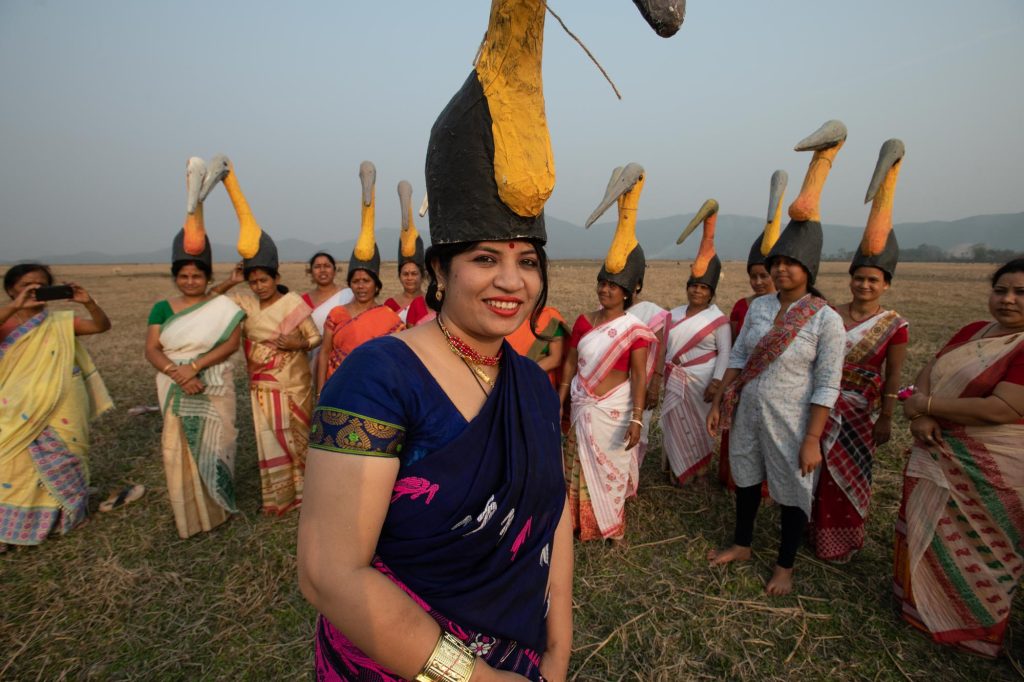40 Years of Impact: Celebrating the Conservation Leadership Programme

For 40 years, the Conservation Leadership Programme has supported thousands of emerging leaders in over 100 countries, advancing local action, influencing policy, and fostering a global movement to safeguard biodiversity and spark lasting change for people and nature.
By Charlie Malcolm-McKay and Kate Tointon
In 1985, a bold idea took root: support and nurture early-career conservationists working in some of the world’s most challenging environments. Forty years later, the Conservation Leadership Programme (CLP) stands as a global force in biodiversity conservation, having supported more than 4,500 individuals in over 100 countries. As a founding partner, we have played a central role in guiding and growing this unique initiative, one that has shaped not only ecosystems but also generations of conservation leaders.
CLP was founded on the powerful idea that investing in people is essential to protecting nature. We joined forces with Fauna & Flora and the Wildlife Conservation Society in recognising that local action, supported by strong mentorship, can drive lasting change. That model has proven remarkably effective. Through funding, training and long-term support, CLP alumni have gone on to launch 126 conservation NGOs, influence national policy and protect species once thought to be lost.

© Gerrit VynVyn
From local action to global impact
Over the past four decades, CLP has funded more than 900 conservation projects, covering everything from Araripe Manakin conservation in Brazil to Greater Adjutant Stork protection in India. Our global network has helped many of these projects thrive, connecting local leaders with scientific expertise, policy influence and broader campaigns.
“CLP nurtures conservationists during their careers to the point where their work is achieving real impact on the ground and recognition at a national and international level.” – Purnima Devi Barman, CLP award-winner in 2009, 2012 and 2015 (2024 Whitley Gold Award winner, and named on the 2025 Time Magazine Women of the Year list)
Take the case of the Grey-breasted Parakeet. In 2012, a CLP-funded team in Brazil led by emerging conservationist, Fábio Nunes embarked on a project that would ultimately bring the species back from the brink of extinction.
Their work began with an alarming discovery: with the exception of one remnant population, the project team found no evidence of this parrot’s presence in the north-eastern parts of the Atlantic Forest where it had historically been found.
This ignited renewed efforts to protect the species. It led to a government-led Conservation Action Plan for the species, and an international partnership between three NGOs (AQUASIS in Brazil, Loro Parque Fondación in Spain and ZGAP in Germany) focused on the bird’s recovery.
The team formed partnerships with local residents who agreed to help them monitor the artificial nests on their properties and provide a round-the-clock watch against poachers. The team also formed Private Protected Areas and the Grey-Breasted Parakeet Wildlife Refuge (Refúgio de Vida Silvestre Periquito Cara-suja) to provide enhanced protection for this species and other endangered birds in the region.
The team’s strategy resulted in an extraordinary turnaround for Grey-breasted Parakeets. Just three fledglings had been recorded in 2010 when the first 30 nest boxes were installed. Since then, the number of successful fledglings has steadily increased year after year, and the team has placed many more nest boxes to keep up with the growing demand. In a landmark achievement for the project, in 2020, the cumulative total number of fledglings reached 1,165. Based on this growing population trend, the IUCN Red List reclassified Grey-breasted Parakeets from Critically Endangered to Endangered in 2017.

Investing in people to protect nature
CLP supports emerging conservationists working in low- and middle-income countries that are biodiverse but often lack resources and support for conservation. Many alumni credit the programme for opening doors that would have remained closed due to limited access to funding or training.
With a focus on diversity and inclusion, CLP has supported the careers of talented and passionate local leaders who have gone on to shape governmental policies, mobilise community actions and enact long-term, tangible conservation solutions that address global conservation challenges.
“As a direct result of our first CLP-supported project, our team managed to create an incredible level of public awareness and engagement about Araripe Manakin conservation in the region. From being virtually unknown when the project started, this endemic bird quickly became a local celebrity, a source of pride, and a tremendous messenger to promote wildlife and water conservation.” – Alberto Campos (CLP Award-Winner 2004, 2007, 2010).

Looking ahead
As the world faces mounting environmental crises, from biodiversity loss to climate change, initiatives like CLP are more vital than ever. Looking ahead, the programme is focusing on ensuring that support can be accessed by all conservationists from early in their careers and beyond, who are working on the highest priority conservation projects in countries where resources are the most limited.
After four decades, one thing is certain: when we invest in people, conservation flourishes. We are honoured to have stood alongside CLP throughout its journey, and we are excited for the future, continuing to support the next generation of conservation leaders who will shape the world to come.
To mark this 40-year milestone, we sat down with CLP’s Senior Programme Officer, Dr Karla G. Hernandez-Aguilar. Watch the video here: